Tokyo Cityrama Morning : Meiji Shrine, Asakusa Temple & Ginza
The Tokyo Cityrama Morning tour offers a 5-hour guided experience, covering Meiji Shrine, Imperial Palace East Garden, and Asakusa Kannon Temple (Senso-ji). This concise tour provides a rich introduction to Tokyo’s cultural landscape, exploring the city’s spiritual heritage and traditions. Guides share informative narration, offering insights into Japan’s history and cultural significance of each site. The tour combines cultural exploration with convenient transportation, providing a great introduction to Tokyo for first-time visitors. By joining this tour, visitors can gain a deeper understanding of Tokyo’s cultural significance – and discover more about this vibrant city’s hidden gems.
Just The Basics
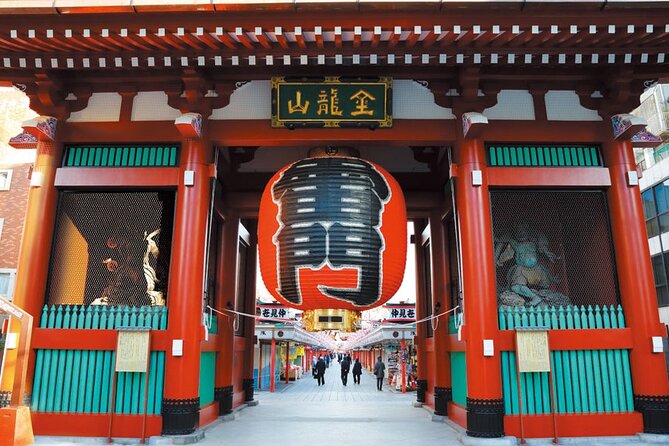
• The Tokyo Cityrama Morning tour covers Meiji Shrine, Imperial Palace East Garden, and Asakusa Kannon Temple (Senso-ji) in 5 hours.
• Guided visits with transportation between sites and admission tickets are included in the tour.
• The tour provides a comprehensive introduction to Tokyo, covering religious, cultural, and commercial sites.
• Meiji Shrine and Senso-ji Temple are the main attractions, offering a glimpse into Japan’s rich cultural heritage.
• The tour is suitable for first-time Tokyo visitors, providing a concise introduction to the city’s highlights.
It's also worth checking out some other tours and experiences nearby.
Tour Highlights and Inclusions
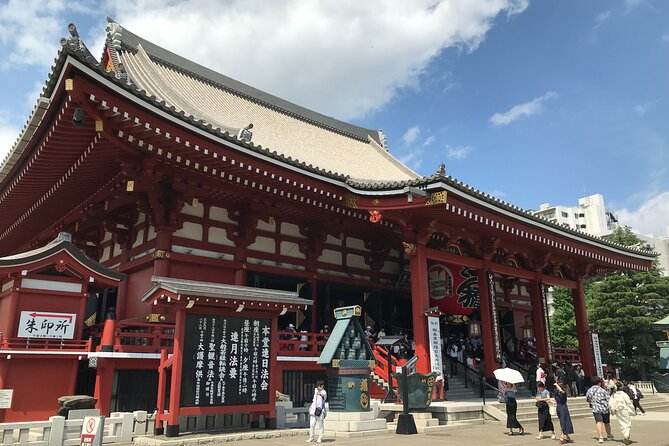
This 5-hour Tokyo Cityrama Morning tour includes guided visits to three iconic sites: Meiji Jingu Shrine, Imperial Palace East Garden, and Asakusa Kannon Temple (Senso-ji), along with transportation between sites and admission tickets.
The tour provides a comprehensive introduction to Tokyo, covering a variety of religious, cultural, and commercial sites.
With guided narration, visitors can expect a rich and informative experience.
The tour’s inclusions make it a convenient option, with transportation and admission tickets taken care of.
This half-day tour is suitable for first-time Tokyo visitors, providing a great introduction to the city.
Exploring Tokyo’s Cultural Sites
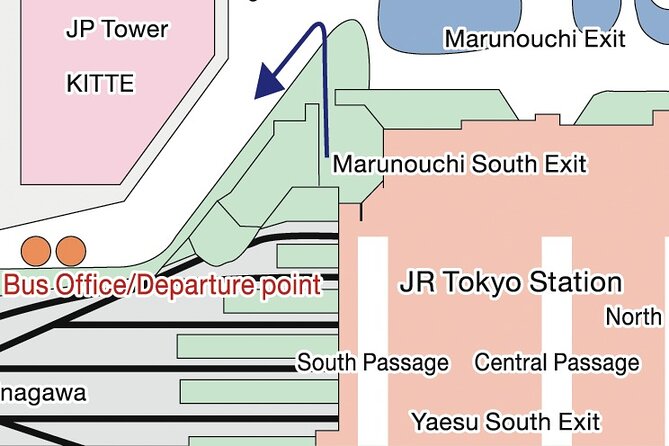
From serene Shinto shrines to vibrant Buddhist temples, Tokyo’s cultural sites offer a fascinating glimpse into the city’s rich spiritual heritage.
The Meiji Shrine, dedicated to the deified spirits of Emperor Meiji and his wife, Empress Shoken, is a tranquil oasis amidst the bustling city.
Asakusa Kannon Temple, also known as Senso-ji, is one of the oldest and most iconic Buddhist temples in Japan, famous for its giant paper lantern and Nakamise shopping street.
These cultural sites provide a unique insight into Tokyo’s spiritual landscape, showcasing the city’s blend of traditional and modern influences. By exploring these sites, visitors can gain a deeper understanding of Tokyo’s cultural significance and its enduring spiritual heritage.
Guide Knowledge and Performance
Guides on the Tokyo Cityrama Morning tour are knowledgeable about Tokyo, Japan, and the sites visited, providing interesting and relevant explanations about the cultural significance of Meiji Jingu Shrine, Imperial Palace East Garden, and Asakusa Kannon Temple.
They possess in-depth knowledge of the city’s history, cultural norms, and the significance of each site.
The guides’ friendly, warm, and professional demeanor creates a comfortable atmosphere for travelers.
While some guides may lack knowledge on specific topics, they generally provide valuable insights into Tokyo’s cultural landscape.
With their expertise, travelers gain a deeper understanding of the city’s iconic landmarks and cultural heritage.
Visiting Meiji Shrine and Senso-ji
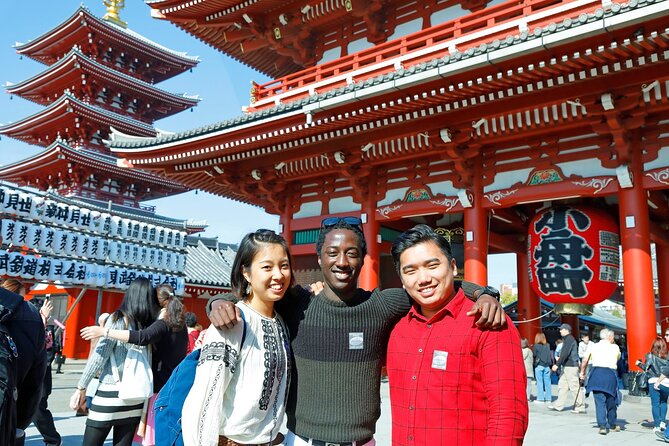
Meiji Shrine and Senso-ji Temple are the main attractions of the Tokyo Cityrama Morning tour, with both sites offering a glimpse into Japan’s rich cultural heritage.
These iconic landmarks provide a unique insight into Japan’s spiritual and historical significance.
Meiji Shrine, dedicated to the deified spirits of Emperor Meiji and his wife, Empress Shoken, is a serene Shinto shrine surrounded by a tranquil forested area.
Senso-ji Temple, on the other hand, is a colorful Buddhist temple famous for its giant paper lantern and Nakamise shopping street.
Visitors can explore the temple grounds, take in the vibrant atmosphere, and capture memorable photos.
Both sites are must-visit destinations in Tokyo, offering a fascinating blend of tradition, culture, and beauty.
Tour Experience and Logistics
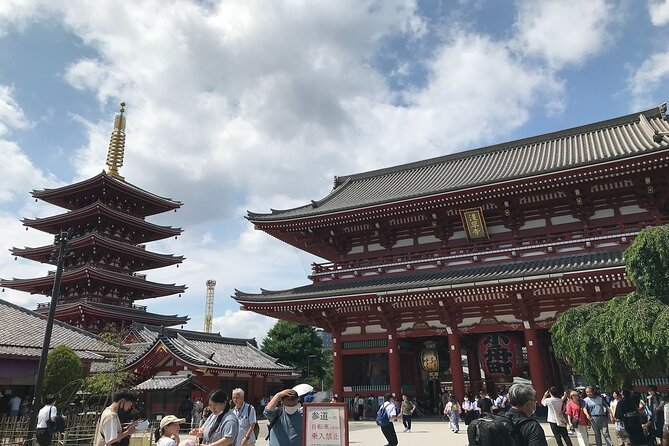
During the Tokyo Cityrama Morning tour, participants embark on a 5-hour adventure that combines cultural exploration with convenient transportation, allowing them to experience the best of Tokyo’s temples, gardens, and shopping areas.
The tour starts at the meetup point, where participants meet their guide and group. The tour covers three sites: Meiji Shrine, Senso-Ji Temple, and a garden.
The guide provides information on Japan’s history and cultural significance of the sites.
The tour includes bus transportation, which can be convenient on rainy days. However, the tour may involve a lot of time spent on the bus, and may not allow enough time to visit each site.
Reviews and Ratings Breakdown
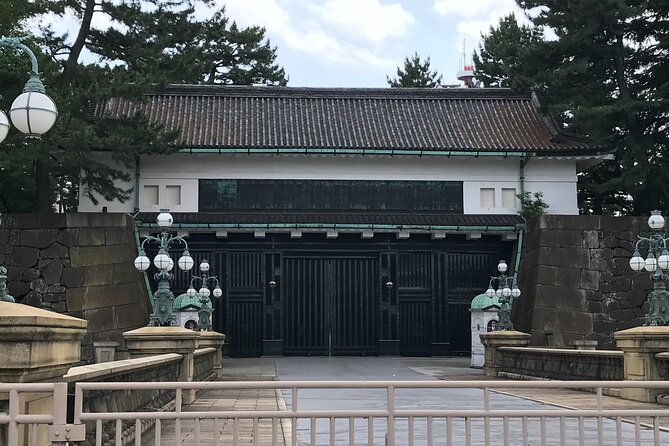
The Tokyo Cityrama Morning tour has garnered a generally positive response from participants, with a 4.0 rating based on 292 reviews.
Almost half of the reviewers, 44%, have given the tour a 5-star rating, while 29% have awarded 4 stars. A smaller proportion, 15%, have given 3-star reviews, and 6% each have given 2-star and 1-star reviews.
This breakdown suggests that the tour has generally met or exceeded the expectations of most participants. While some reviewers may have had minor complaints, the overall sentiment is overwhelmingly positive, indicating that the tour provides a valuable and enjoyable experience for its participants.
Cancellation Policy and Refunds
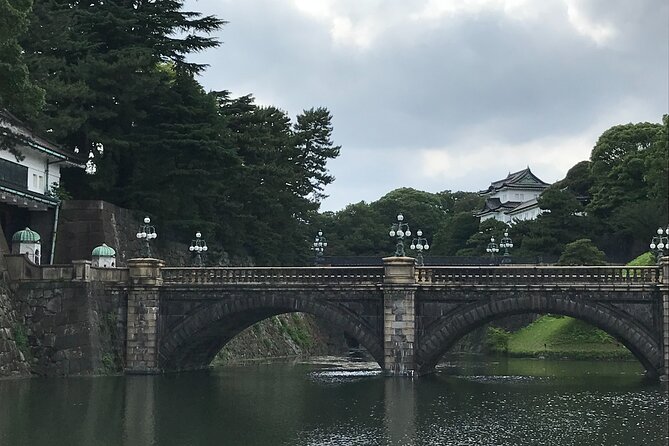
Tour participants can cancel their bookings up to 24 hours before the experience starts to receive a full refund, but cancellations made less than 24 hours prior to the tour won’t be eligible for a refund. This policy allows for flexibility in case of unforeseen circumstances.
- Full refund: Cancel up to 24 hours before the experience starts.
- No refund: Cancel less than 24 hours before the experience starts.
- No changes: Any changes made less than 24 hours before the experience starts won’t be accepted.
It’s essential to review and understand the cancellation policy before booking the tour to avoid any misunderstandings.
Is This Tour Right for You
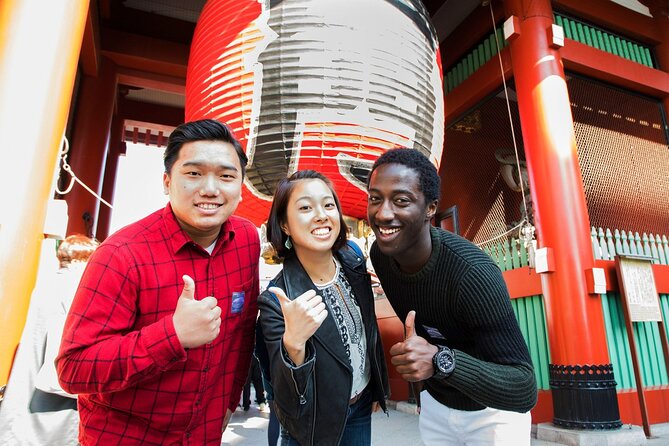
Considering the tour’s focus on Tokyo’s cultural and historical landmarks, visitors seeking a concise introduction to the city’s highlights may find this tour appealing.
This tour is suitable for first-time Tokyo visitors, providing a great introduction to the city.
However, it may not be ideal for those who prefer walking tours or want to spend more time exploring each site.
The tour’s half-day duration can feel rushed, and the bus transportation, although convenient on rainy days, may involve a lot of time spent on the bus.
Ultimately, this tour is best for those looking for a concise, guided experience that covers Tokyo’s main attractions.
Here's a few more nearby tours and experiences we think you'll like.
- 3 Hours Photography and Food Tour in Setagaya
- 1 Day Bus Tour To Mitsumine Shrine From Shinjuku
- Bunraku Performance In Kita-Senju Tokyo
- Tokyo Tour With Guided Interpreter Tokyo/Yokohama ⇒ Tokyo 8 Hours up to 18 People Private Bus Use
- Tokyo Narita Airport (NRT) to Hakone – Private Arrival Transfer
- 4-Days Private MT Fuji Tokyo Kamakura Nikko Hakone Yokohama Tour
Frequently Asked Questions
Can I Bring My Luggage on the Bus?
She can likely store small luggage under the bus seat or in a designated area, but it’s best to check with the tour operator beforehand to confirm their luggage policy and any size restrictions.
Are There Any Meal or Snack Breaks During the Tour?
She doesn’t find any mention of meal or snack breaks during the tour, suggesting that participants should plan to grab a quick bite before meeting the guide or purchase snacks along the way.
Is the Traditional Japanese Dance Activity Participatory?
She discovers that the traditional Japanese dance activity is a watch-only experience, not participatory, allowing travelers to observe and appreciate the cultural performance without being required to participate themselves.
Can I Take Photos Inside the Meiji Shrine or Senso-Ji Temple?
She cannot take photos inside the main shrine of Meiji Shrine or Senso-Ji Temple, as pictures are not allowed; however, she can take photos in the outer areas and gardens of these sites.
Are There Any Wheelchair-Accessible Options for This Tour?
She checks the tour details and finds that wheelchair accessibility is not explicitly mentioned, but recommends contacting the tour operator directly to inquire about potential accommodations or modifications for guests with mobility needs.
Not for you? Here's more of our most recent tour reviews happening neaby
- Shibuya Anime and Manga Tour With Ramen Lunch
- Shibuya Hidden Street Eats: Japanese BBQ, Fried Chicken, & More!
- Kitchenware Shopping and Cooking Experience in Kappabashi
- Private Shopping Tour From Tokyo to Mitsui Outlet Park Makuhari
- Samurai Experience (with Costume Wearing)
- Tokyo: Samurai Experience and Show
- Tsukiji Old and New – Fish Market Food & Hamarikyu or Skyview
- Private Shopping Tour From Tokyo City to Lake Town Outlet
- A Typical Evening in Shinjuku
- Tokyo Kimono Experience @Japanese-Style Studio Near by Happo-En
- Izakaya Private Hopping Tour in Kamata
- Explore Nikko Toshogu Shrine and Edo Wonderland
- Private Trekking Experience up to 7th Station in Mt. Fuji
- Private Transfer: Tokyo to Haneda Airport HND in Luxury Car
- Morning Discount! Shuttle Van Transfer, Tokyo⇒Haneda, Narita, TDL
Final Words
To sum it up, the Tokyo Cityrama Morning tour provides a comprehensive introduction to Tokyo’s rich cultural heritage, visiting iconic sites such as Meiji Shrine, Imperial Palace East Garden, and Asakusa Kannon Temple.
With expert guides, included admission tickets, and hassle-free transportation, this 5-hour tour is an ideal experience for first-time Tokyo visitors seeking a deeper understanding of Japan’s history and cultural significance.
